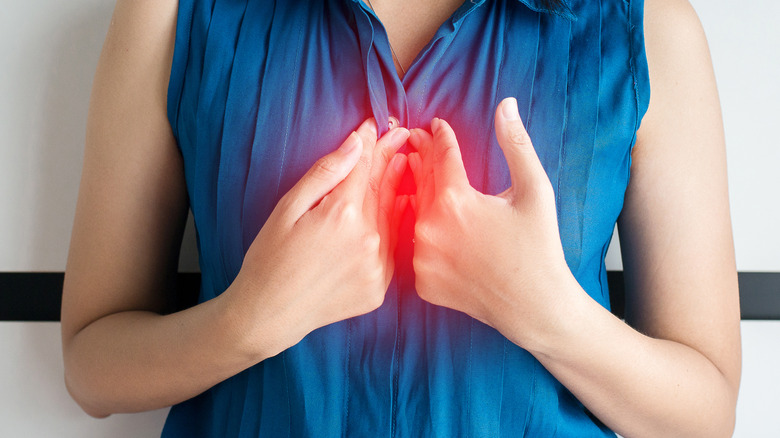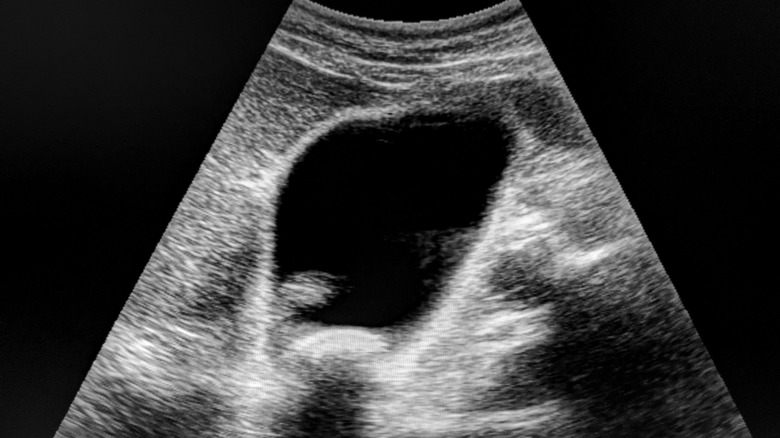Is There A Link Between GERD And Gallbladder Disease?
Gastroesophageal reflux disease, also known as GERD, is a type of acid reflux characterized by stomach acids making their way back up into the esophagus due to a weakened esophageal sphincter (LES), which is responsible for keeping the mouth of the stomach firmly closed during digestion, as per WebMD. There are several factors that contribute to the condition, including smoking, pregnancy, obesity, eating certain foods or large meals, taking specific medications, and underlying health conditions, such as lupus and scleroderma. Those with GERD will often experience bad heartburn pain after eating, nausea, vomiting, a cough that won't go away, and difficulty swallowing.
Gallbladder disease affects a different part of the body: the gallbladder. This small organ is responsible for storing bile, which is a digestive fluid that helps break down fats and other nutrients as they move from the stomach to the small intestine, as explained by Johns Hopkins Medicine. However, there isn't just one type of gallbladder disease. Some may experience inflammation of the organ, while others may have abscesses, congenital defects, or tumors. Regardless of the type, most people will feel pain in the general area, where the organ is located. Nausea, gas, and vomiting are also frequent symptoms.
As both GERD and gallbladder disease are conditions located in the digestive system, some may wonder whether there's a connection between the two. Here's what we know.
The link between GERD and gallbladder disease isn't clear
A 2015 study published in the Arquivos Brasileiros de Cirurgia Digestiva examined the link between gallstones, in particular, and GERD. Although researchers were apt to point out that a definitive link between the two conditions couldn't be concluded, they did find that individuals with GERD had a higher prevalence of gallstones when compared to the general population. A smaller 2006 study published in Surgical Endoscopy And Other Interventional Techniques also pointed to a potential link between the two. Researchers found that GERD patients who took proton pump inhibitors (PPIs) to manage the condition had reduced gallbladder function, suggesting that it isn't GERD in itself that links GERD and gallbladder disease.
Despite the above evidence pointing toward a connection between GERD and gallbladder disease, a 2001 study published in The American Journal of Gastroenterology found the complete opposite. Researchers ended up finding no associations between GERD and gallstones when comparing GERD patients to a control group without GERD. They added that GERD was not exacerbated or influenced by the presence of gallstones.
It is also possible that GERD and gallbladder disease symptoms simply overlap in some cases, leading to a faulty conclusion that the two are linked. The experts at Houston Heartburn & Reflex Center explain that bloating, stomach discomfort, and difficulty digesting meals are all symptoms that both conditions share.


